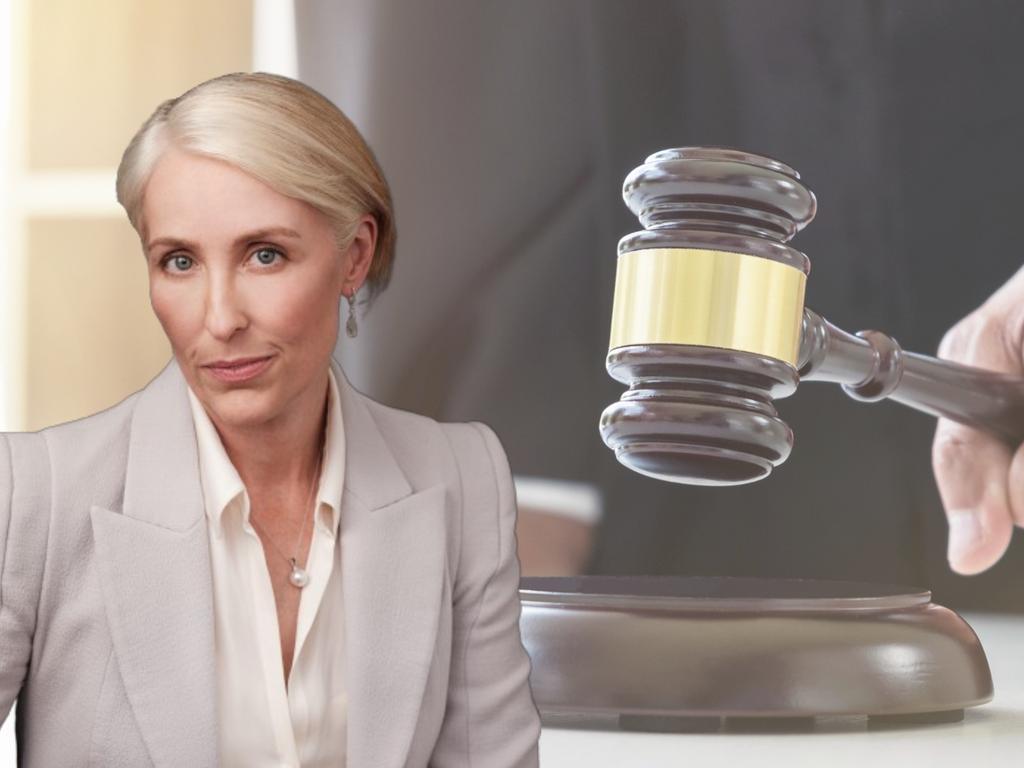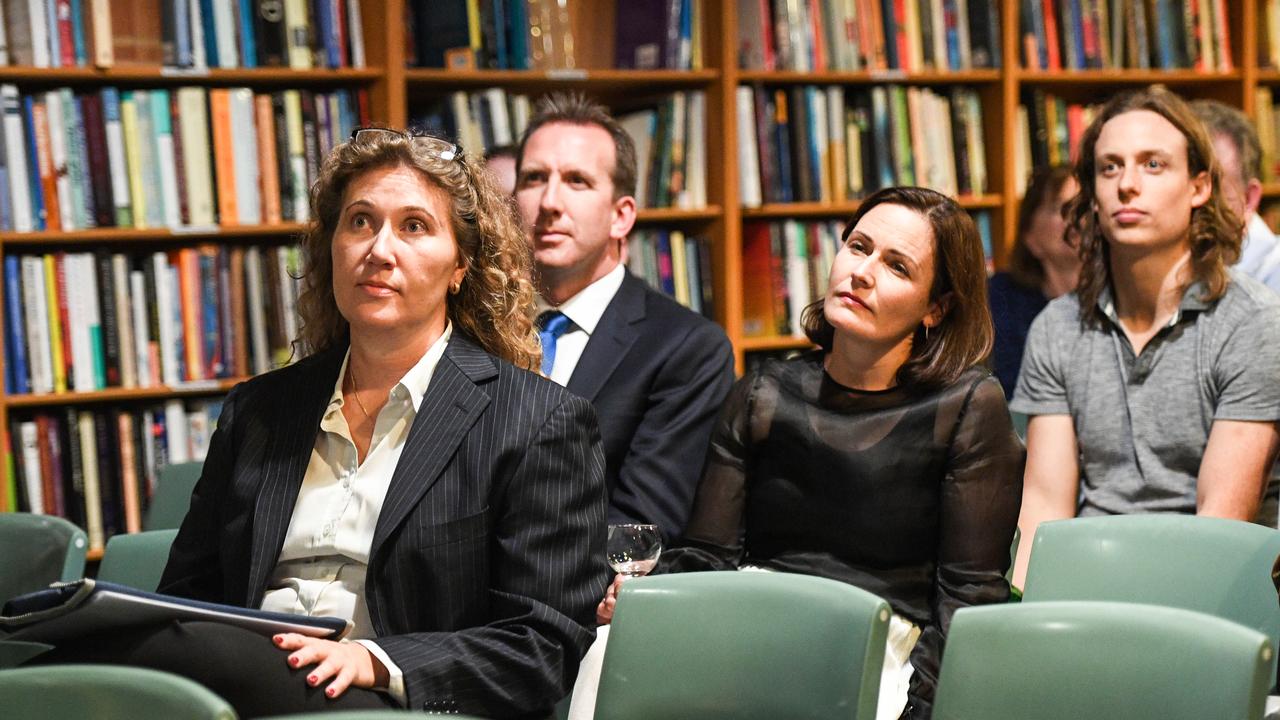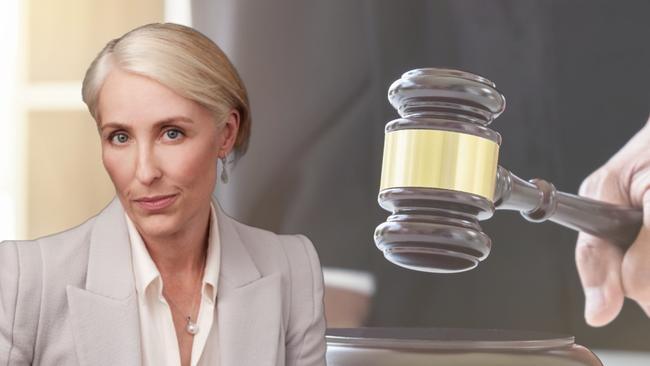
There was once a story of boy meets girl or, in this case, man meets woman. He had been out drinking with friends, and met the young woman at a bar near the border of NSW and Queensland. They went back to his apartment in Tweed Heads, and they had sex.
When she tried to re-enter Queensland without a border pass, the woman appeared distressed and told officers she had been raped.
The matter went to court, with the man, in his late 20s, maintaining the sex was consensual. After just 25 minutes of deliberation, the jury agreed.
At the time, Judge Penelope Wass criticised state prosecutors for shepherding “incredible and dishonest allegations of sexual assault” through the courtroom.
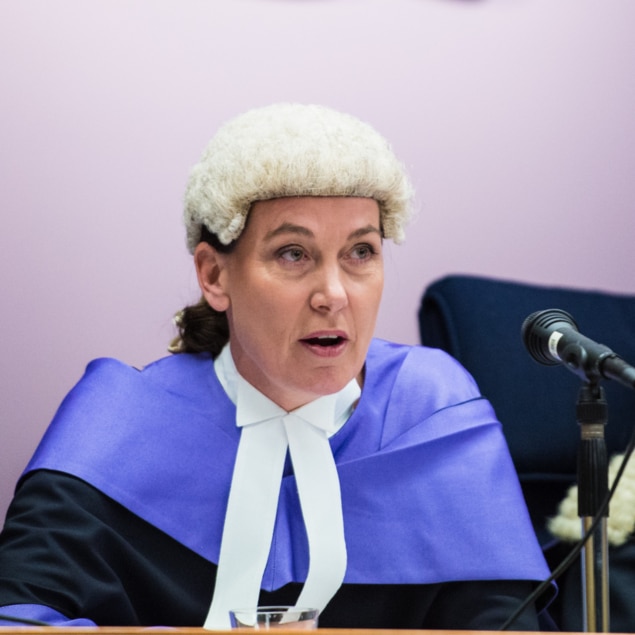
A second, similar story unfolded with a different couple in inner-west Sydney. The man and woman had been out for drinks at a neighbouring pub. They went back to his house and engaged in oral sex before she woke up angrily, stormed out of the apartment and later reported the matter to police.
At trial, the prosecution formed a circumstantial case, relying predominantly on a DNA match from the man found in the woman’s vagina and the evidence of a blood alcohol expert.
That case, too, was thrown out by a jury that deliberated for less than an hour. This time, Judge Peter Whitford blasted the prosecution for bringing a “meritless” matter before the court.
A third story unfolded in a regional town. The pair met at a gym in Wagga Wagga. The man, a trainer, offered to help the woman improve her form. She accepted. They had sex.
What followed, though, was a classic case of he said, she said after the woman claimed their numerous sexual encounters were non-consensual.
The matter was brought before a judge, with the man’s lawyers insisting that due to a lengthy paper trail of text messages between the pair, the sex must have been lawful. Judge Gordon Lerve agreed, and deemed the case “doomed to failure” from the outset.
Such is the tension some believe is gripping the criminal justice system, resulting in a bitter war between prosecutors and judges.
The judges say the office of NSW chief prosecutor Sally Dowling consistently puts accused rapists on trial for crimes that will never secure a conviction. Some in the legal fraternity put this down to a deep fear on the part of prosecutors that they won’t be seen to be taking rape cases seriously enough.
NSW District Court judge Robert Newlinds, who presided over another case featuring a woman who alleged she was sexually assaulted because she was so drunk she had a blackout and could not remember the events, summed up the judges’ gripes when he said cases were repeatedly being prosecuted “based on obviously flawed evidence”.

“I do wish to record that I am left with a deep level of concern that there is some sort of unwritten policy or expectation in place in the Office of the Director of Public Prosecutions of this state to the effect that if any person alleges that they have been the subject of some sort of sexual assault then that case is prosecuted without a sensible and rational interrogation of that complainant so as to at least be satisfied that they have a reasonable basis for making that allegation, which would include to at least being satisfied that the complainant has a correct understanding of the legal definition of sexual assault or sexual intercourse without consent,” Judge Newlinds said.
His comments are echoed by judges Wass, Lerve, Whitford and acting judge Paul Conlon, all of whom have criticised various prosecutors for bringing unviable cases before the court.
However, Dowling and senior staff in her office “unequivocally” refute the accusations, labelling some of the comments as “unfounded and inflammatory”.
This week, in a last-minute staff meeting, Dowling encouraged solicitors in her office for applying published guidelines “in a diligent fashion”, and told them that other judges had expressed faith in her office.
She has lodged a judicial complaint against Judge Newlinds for his comments, rejecting “any suggestion that (her office) makes prosecution decisions lazily or on the basis of political expedience, or that it operates according to ‘some sort of unwritten policy’ ”.
The feud has sent Australian legal corners into a spin.
Members of Dowling’s own staff have started speaking out, with some telling Inquirer the judges are completely correct in their criticism of the Office of the Director of Public Prosecutions. They have said it is incredibly difficult to have a case discontinued, and they are often shut down by senior members of staff when they try to do so.
So, how did we get here?
We have come a long way from a horrifying time in the 1970s, when rapists could only be men, and victims could only be women. When rape within marriage was legal, and sexual assault was considered a crime only if penile vaginal intercourse occurred.
Age immunities were embedded in the law, and boys under the age of 14 were deemed “unable” to rape somebody. So-called “rape shields” had not yet been introduced, which meant complainants could be grilled in the witness box about the full extent of their past sexual experiences, and have this weaponised against them.
That all changed in 1981 with huge amendments to the NSW Crimes Act. Feminist advocacy argued the law addressed sexual assault in discriminatory ways, and perpetuated well-debunked myths, such as that rapes are most likely committed by strangers.
Nationally, we’ve had affirmative consent laws introduced in five jurisdictions, broadly requiring someone who wants to engage in a sexual act with another person to actively gain consent. Western Australia, South Australia and the Northern Territory are the final jurisdictions to adopt new laws, with reviews under way and many believing the reforms are now imminent.
Snuggled in between the legal reforms have been social movements encouraging the uptake of accusations on face value, and the integration of a “believe the victim” mentality.
The Hollywood-born #MeToo movement spurred on thousands of women to come forward with allegations of harassment and assault. Rape advocacy came front and centre in Australia in 2021 when Grace Tame was appointed Australian of the Year and the interview with Brittany Higgins was aired on The Project.
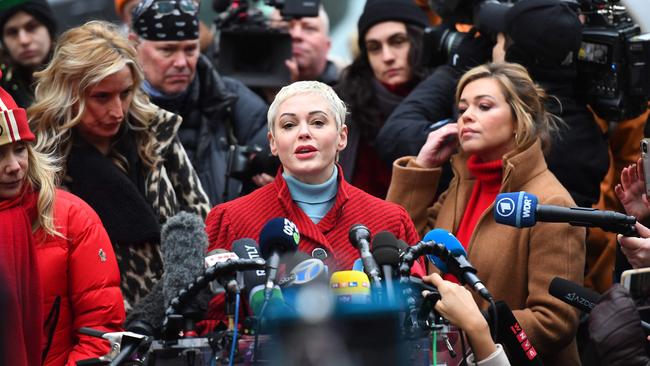
The #March4Justice and Scott Morrison’s beyond-mediocre response to the pleas of Australian women forced a colossal shift in the dialogue around sexual assault, ultimately manifesting in the demise of his prime ministership. Or at least contributing to it.
The aborted rape trial of Bruce Lehrmann in 2022 sparked further discussion about trial by media, an individual’s right to a presumption of innocence, and the great responsibility held by a prosecutor when deciding whether or not to proceed to trial.
During the subsequent Sofronoff inquiry into former ACT chief prosecutor Shane Drumgold’s handling of Lehrmann’s rape case, counsel assisting the inquiry and senior police officers submitted the #MeToo movement and “intense public discussions” about low conviction rates affected the decisions made to prosecute Lehrmann.
And now, it seems, similar accusations are arising in the neighbouring jurisdiction of NSW.
University of Wollongong criminal law professor Julia Quilter says society has long progressed past the concept of the “ideal victim” and now many “different types of complainants are coming forward”.
“I think that’s a really good thing because in the past there was very much a perception that you had to have an ideal victim. The ideal victim who was attacked by a stranger in a dark place, she was quote unquote chaste,” she says. “We no longer ascribe simply to that concept of the ‘real rape’ but that has produced the capacity for matters to be charged and investigated and trials to be run that don’t have those central features of the complainant.
“For example, in the past it would be uncommon for a complainant to have been heavily intoxicated.”
Professor Quilter takes issue with a causation being drawn between an increase in women reporting complaints and the criticism being dished out by judges. She says it is a small number of judges criticising the ODPP and that there is a “gap in reasoning” between an uptick in reporting and baseless prosecutions being brought to court.
However, if you ask criminal defence lawyer David Barron, he would disagree.
Barron was the solicitor acting for the Wagga Wagga gym trainer who was accused of sexually assaulting a client.
The case was eventually thrown out – with costs awarded to Barron’s client – after Judge Lerve found the ODPP failed properly to consider dozens of messages sent between the pair after they had sex.
“It’s something that has become an issue ever since the #MeToo movement took effect,” Barron, who has been practising for about 30 years, tells Inquirer.
“It seems as if the authorities are more inclined to believe every complaint that comes across their desk.
“In relation to the gym instructor case, the authorities had the complaint and really looked no further. It was incumbent on us to properly investigate. We obtained a long chat history through messenger … and as the trial judge said, once you read that material, there was no prosecution case.”
Barron made two separate “no bill” applications to try to have the case thrown out, claiming there were unreasonable prospects of a conviction. Both were dismissed by Dowling’s chambers, and the matter proceeded through trial.
“We are not optimistic when filing no bill applications, but we still do so in the interest of our clients,” he says. “In fact, sometimes the no bill has been lodged at the suggestion of local prosecutors, but Sydney still knocks them back.”
Barron says the issue is indicative of a distrust between senior staff in Dowling’s office and prosecutors on the ground.
“Prosecutors used to be trusted to make judgment calls and decisions on whether to proceed with cases or how to proceed with cases to a much greater extent than they are now,” he says.
“These days it seems like the powers-that-be don’t trust the people in the courtrooms to make decisions on the evidence they have got in front of them.
“The solicitors who actually run the cases should have more say in whether or not they proceed,” he says. “They are the person who acknowledges the case. So, really, there should be more autonomy for prosecutors.”
Criminal barrister Megan Cusack, who acted for the accused in the Tweed Heads matter, agrees.
At the time, Judge Wass ripped into the prosecution, saying they must do more than “shepherd incredible and dishonest allegations of sexual assault through the criminal justice system, leaving it to the jury to carry the burden of decision making that ought to have been made by the prosecutor”.
Cusack says the attitude towards sexual assault “has been shifting for a while”, citing a case in which a wife accused her husband of rape because he did not explicitly ask her whether she wished to have sex or not.
“I said to the jury: ‘How many times, while you’ve been married, have you asked if they want to have sex?’” she said, adding that the jury took about five minutes to return a not guilty verdict.
Not only does it have a colossal impact on the accused, it can also devastate a complainant, Cusack says.
“This whole thing about having your day in court is ridiculous,” she tells Inquirer. “They should be told realistically what is going to happen. If you’ve got a weak case because there’s all this evidence against them, they should be told what they are in for; that their credit is going to be run through the mud.”
This saga is far from over.
The Australian Law Reform Commission has undertaken an inquiry into justice responses to sexual violence and is due to deliver a report early next year.
Meanwhile, The Australian this week revealed up to 400 rape cases in NSW will be reviewed by crown prosecutors in an audit announced by Dowling following judges’ criticism.
The results of the audit are expected to be made public once it is completed.
Click here to sign up to Ipso Facto, The Australian’s weekly legal affairs newsletter.



